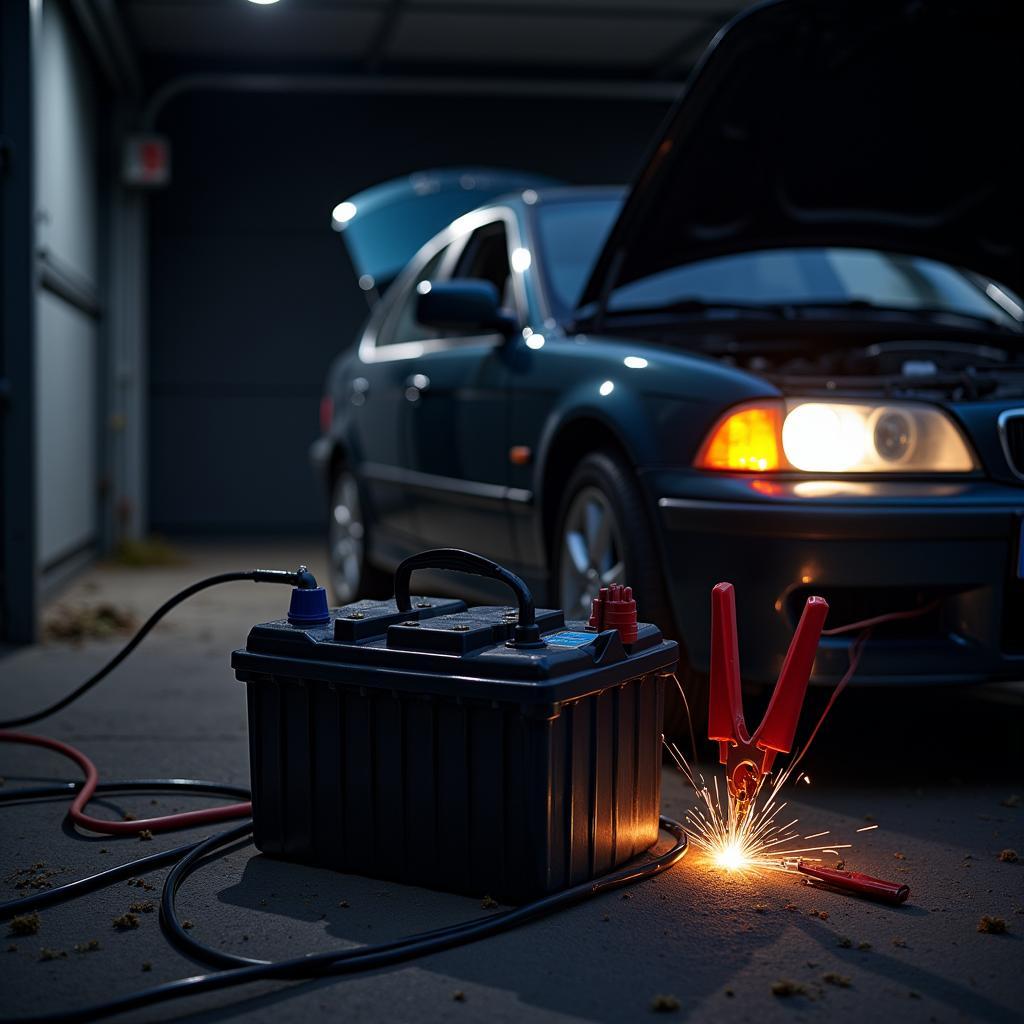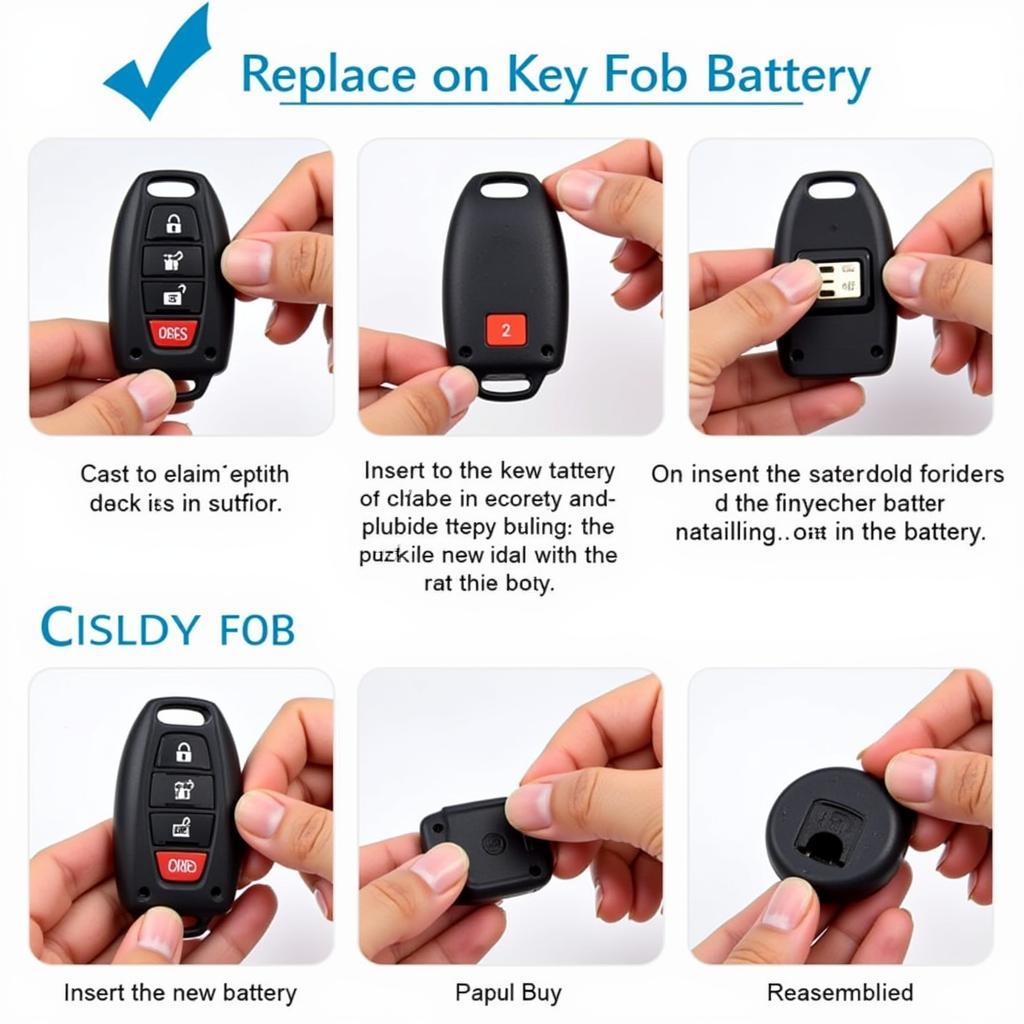That dreaded clicking sound when you turn your key – and then nothing. A car battery clicking but not starting is a frustratingly common problem, and it can leave you stranded at the worst possible time. But before you call a tow truck, there’s a good chance you can diagnose and potentially fix the issue yourself. This guide provides a comprehensive overview of why your car battery might be clicking and not starting, along with troubleshooting tips and solutions.
Why is My Car Battery Clicking But Not Starting?
There are several reasons why your car battery might be making a clicking noise but not starting the engine. The most common culprit is a low battery charge. This can be caused by leaving lights on, extreme temperatures, an old battery, or a faulty charging system. However, the clicking sound can also indicate other problems, such as a bad starter motor, corroded battery terminals, or even a faulty ignition switch. Accurately diagnosing the problem is crucial for finding the right solution.
Low Battery Charge
A weak battery often struggles to provide the necessary power to crank the engine. The clicking sound you hear is the starter solenoid attempting to engage the starter motor, but the battery lacks the juice to complete the process. Jump-starting the car is often a temporary fix, but it’s crucial to determine the underlying cause of the low charge.
 Low Car Battery Clicking Noise
Low Car Battery Clicking Noise
Bad Starter Motor
The starter motor is responsible for cranking the engine and getting it started. If the starter motor is faulty, it might only produce a clicking sound instead of turning the engine over. A bad starter can be caused by worn-out components, electrical issues, or even physical damage.
Corroded Battery Terminals
Corrosion on the battery terminals can disrupt the flow of electricity between the battery and the starter. This can result in a clicking sound as the starter struggles to receive enough power. Cleaning the terminals is often a simple and effective solution.
Faulty Ignition Switch
While less common, a faulty ignition switch can also cause a clicking noise. The ignition switch supplies power to various components, including the starter. A malfunctioning switch can prevent the starter from receiving the necessary power to engage.
Troubleshooting a Clicking Car Battery
Before you jump to conclusions, it’s essential to systematically troubleshoot the problem. This can save you time and money in the long run.
- Check the Battery Terminals: Inspect the battery terminals for corrosion. If they appear corroded, clean them with a wire brush and a mixture of baking soda and water.
- Try Jump Starting: If cleaning the terminals doesn’t work, try jump-starting the car. If the car starts, this indicates a low battery charge. However, it’s important to get the battery tested to determine if it needs replacement.
- Test the Starter: If the car doesn’t jump-start, the starter motor could be the problem. You can test the starter by using a multimeter or by tapping it gently with a hammer while someone tries to start the car. If the car starts after tapping the starter, it likely needs replacement.
- Check the Ignition Switch: If the starter and battery appear to be fine, the ignition switch could be the culprit. Testing the ignition switch usually requires some electrical know-how and specialized tools.
What Does a Rapid Clicking Sound Mean?
A rapid clicking sound typically indicates a severely drained battery or a loose connection at the battery terminals or starter cables.
Can a Bad Alternator Cause Clicking?
A bad alternator can indirectly cause a clicking sound. A faulty alternator won’t charge the battery properly, eventually leading to a low battery charge and the associated clicking.
Expert Insights on Clicking Car Batteries
“A clicking battery often points towards a power supply issue,” says John Miller, ASE Certified Master Technician. “It’s important to rule out the simple fixes like corroded terminals before assuming it’s a major component failure.”
Another expert, Sarah Chen, Automotive Electrical Engineer, adds, “While jump-starting can get you going in a pinch, it’s crucial to address the underlying cause of the low battery. A failing alternator or parasitic drain can quickly lead to a dead battery again.”
Conclusion
A car battery clicking but not starting can be a frustrating experience. However, by understanding the potential causes and following the troubleshooting steps outlined in this guide, you can often diagnose the problem yourself and avoid unnecessary towing expenses. Remember to always prioritize safety when working on your car’s electrical system. If you’re unsure about any step, consult a qualified mechanic.

